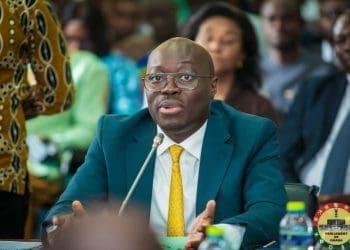Ghana’s major opposition parties have jointly petitioned the Dean of the Diplomatic Corps, Ambassador Maher Kheir of Lebanon, calling for international intervention in what they describe as a deliberate and dangerous attempt by President John Dramani Mahama to undermine the country’s judiciary and democratic institutions.
The petition, endorsed by the New Patriotic Party (NPP), the National Democratic Party (NDP), the Liberal Party of Ghana (LPG), and the People’s National Party (PNP), criticizes the recent suspension of Chief Justice Gertrude Araba Esaaba Sackey Torkornoo as “politically motivated” and an attack on the independence of the judiciary.
Suspension sparks constitutional showdown
President Mahama, on April 22, 2025, announced the suspension of Chief Justice Torkornoo following the submission of three separate petitions seeking her removal. In accordance with constitutional provisions, a five-member committee was appointed to investigate the matter.
While the presidency insists that the move is in line with Article 146 of the Constitution, opposition parties argue that the suspension is the latest in a series of calculated steps designed to “capture” the judiciary and neutralize its ability to act as a check on executive power.
“This action compromises the delicate balance of powers enshrined in our Constitution and risks public trust in the judiciary as the last bastion of impartiality and fairness,” the petition states.
Opposition raises alarms over Mahama’s judicial agenda
The opposition coalition ties the current development to earlier comments made by then-presidential candidate Mahama in 2023, during which he reportedly called for the appointment of more National Democratic Congress (NDC)-aligned judges to “balance out” the perceived bias in the courts.
They contend that those remarks, combined with the recent nomination of seven new Supreme Court justices by President Mahama, suggest a broader plan to realign the judiciary in favour of the ruling party.
“It is now evident that those statements were not mere rhetoric, but rather a blueprint for a judicial overhaul,” the coalition stated.
Ghana’s democratic standing under threat
Long praised for its democratic stability in an otherwise volatile West African subregion, Ghana is now at a crossroads, the petitioners warn.
They argue that the current political trajectory, if left unchecked, could mirror the constitutional breakdowns seen in neighbouring Mali, Guinea, Burkina Faso, and Niger—countries that have all recently experienced military coups.
“Ghana has admirably stood apart from this tide. It is this enviable record that now faces a real and present danger,” the letter to Ambassador Kheir reads.
The petition suggests that Ghana’s global image as a model democracy is in jeopardy and urges international actors to take note of unfolding developments in Accra.
Claims of political intimidation and executive overreach
The opposition also accuses the Mahama administration of using state power to suppress dissent, pointing to the recent arrest and prosecution of former officials, which they claim are politically motivated.
“The government’s unholy attempt to weaken the judiciary has been accompanied by a preconceived agenda to use executive power to intimidate political opponents under the guise of fighting corruption,” the petition states.
They liken the current environment to the days of the Provisional National Defence Council (PNDC), the quasi-military regime led by former President Jerry John Rawlings in the 1980s. Mahama’s NDC is a political successor to that government.
Diplomatic action sought
In their petition, the opposition parties appeal to Ambassador Kheir and the wider diplomatic community to press the Ghanaian government to immediately reinstate Chief Justice Torkornoo.
They also call for an end to what they describe as a campaign of political persecution targeting dissenters and former officials.
Their call to action follows a protest march held on May 5 under the banner “SAVE THE JUDICIARY,” where similar petitions were delivered to the presidency, Parliament, and the judiciary.
As tensions continue to rise, the opposition’s message is clear: Ghana’s democratic institutions are under siege, and international partners must speak out before it is too late.














